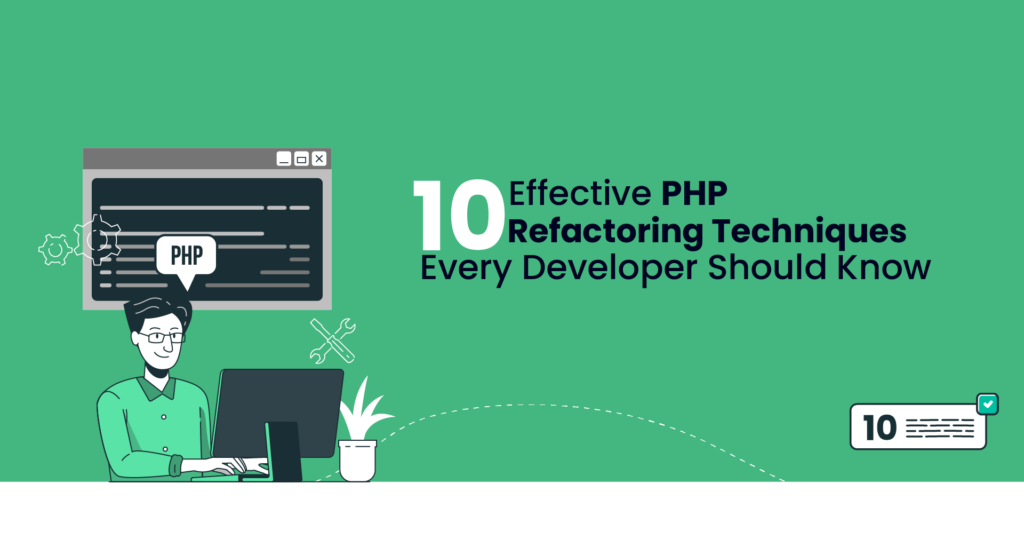Personalization is the key to success in an online marketplace. With machine learning, it’s easier than ever to provide tailored recommendations and personalized interactions for your customers. In this blog, we’ll dive into everything you need to know about marketplace personalization with machine learning. We’ll explain what it is, how it works, and its impact on user experience and customer engagement.
We’ll also explore practical applications of machine learning in marketplace personalization like predicting product preferences, adjusting prices dynamically, trend analysis for personalized marketing, and feed personalization for improved user experience. However, implementing machine learning comes with challenges like technical and data-related issues as well as privacy concerns. We have outlined some solutions in this blog post to tackle these challenges.
Lastly, we will take a look at real-world case studies of the successful implementation of machine learning in marketplaces such as Airbnb and Uber. Join us as we explore the exciting world of marketplace personalization with machine learning and what the future holds for this innovative technology.
Understanding Marketplace Personalization
Tailored recommendations can greatly optimize user experience, which in turn boosts customer satisfaction. This enhanced satisfaction can ultimately lead to driving business growth. By utilizing machine learning, personalized interactions become possible, opening up new marketplace development opportunities. In fact, personalization fosters a positive environment for marketplace evolution, allowing for the integration of artificial intelligence applications.
The Concept of Personalization in Online Marketplaces
The evolution of marketplace personalization has greatly enhanced the customer experience. Furthermore, analyzing user data drives marketing personalization, resulting in improved customer demand. In fact, tailoring recommendations for different users is a key aspect of personalization.
How Machine Learning Facilitates Personalization
Utilizing machine learning technology can greatly enhance a customer’s personalized experience while using a marketplace. By leveraging this technology, personalized recommendations can be made based on user behavior, ultimately leading to increased satisfaction. Additionally, machine learning can be used to detect and prevent fraudulent activity, further improving the overall user experience. With these benefits in mind, implementing machine learning in a marketplace is a smart move for any business looking to improve its customer experience.
Here’s an article on Comprehensive Guide to Building Marketplace, check it out.
Impact of Machine Learning on Marketplace Personalization
By leveraging machine learning, dynamic pricing is optimized, fraud detection and personalized marketing trends are predicted, resulting in improved customer engagement and experience. Ultimately, ecommerce personalization through machine learning drives business growth.
Enhancing User Experience with Tailored Recommendations
To optimize online marketplace search results, personalized recommendations are key. AI-driven recommendations, for instance, allow for a more personalized user experience. Additionally, natural language processing can further personalize search results. In the realm of email marketing, personalization can also enhance the user experience. And when it comes to chatbot interactions, machine learning can help to personalize these interactions. Overall, enhancing the user experience through tailored recommendations fosters positive engagement and customer satisfaction.
Improved Customer Engagement through Personalized Interactions
By utilizing machine learning, customer service can be personalized to enhance customer satisfaction, leading to improved customer engagement. Personalized marketing strategies driven by user data analysis cater to customer demand, further enriching the customer experience.
Check out an article on AI & Machine Learning.
Practical Applications of Machine Learning in Marketplace Personalization
Machine learning optimizes e-commerce inventory management and pricing personalization. It uses algorithms for marketplace development and personalized marketing, supporting fraud detection. AI facilitates customer demand analysis, enhancing the shopping experience.
Predicting Product Preferences
Anticipating customer choices through AI and machine learning enhances user experience. Understanding shoppers’ needs and behaviors is key for personalized marketing and product recommendations. This boosts customer engagement and satisfaction, making it a win-win for both the target audience and marketers.
Adjusting Prices Dynamically
By leveraging artificial intelligence and trend analysis, dynamic price adjustments can be made to cater to the target audience. As a result, this leads to a better user experience and increased engagement, all while avoiding the pitfalls of fake reviews or hackers. Additionally, automation plays a key role in adjusting prices dynamically and keeping up with market variants.
Trend Analysis for Personalized Marketing
Analyzing current trends is crucial for personalized marketing strategies. Firstly, understanding the latest preferences and behaviors of the target audience through artificial intelligence and NLP helps marketers adapt their campaigns effectively. Additionally, trend analysis involves identifying variants and adjusting strategies to improve customer engagement and satisfaction. Therefore, utilizing machine learning in this process can greatly enhance the success of personalized marketing efforts.
Feed Personalization for Improved User Experience
By enhancing user experience through personalized product recommendations, marketplace personalization with machine learning has become a prevalent trend. With the help of machine learning algorithms, user data is analyzed to provide tailored suggestions. Moreover, optimizing search results and increasing customer satisfaction are some of the key benefits of implementing personalization. This, in turn, improves marketplace user behavior, driving demand and engagement. Therefore, it is safe to say that machine learning has made it easy to personalize marketplaces and has become an essential tool for businesses.
An article about The Impact of AI in Fintech and Machine Learning might interest you.
Challenges and Solutions in Implementing Machine Learning for Personalization
Successfully implementing AI for marketplace personalization requires overcoming technical challenges. Moreover, addressing data-related challenges is essential to improving the personalized user experience. By implementing machine learning solutions, online marketplaces can optimize personalization and offer new opportunities for target audience engagement.
Technical and Data-Related Challenges
Implementing machine learning for personalized marketplace offerings requires expertise in data science. However, overcoming technical challenges and analyzing user purchase history are crucial for successful personalization. Ultimately, machine learning algorithms personalize marketplace offerings based on user behavior and demand, involving deep learning for optimization.
Privacy Concerns and Solutions
Balancing user data protection is crucial for marketplace personalization. Privacy compliance maintains customer trust, fostering satisfaction. Fraud detection algorithms safeguard user data, while adherence to privacy regulations secures marketplace personalization data.
Here’s an article on Data Engineers vs. Machine Learning Engineers.
Case Studies: Successful Implementation of Machine Learning in Marketplace Personalization
Airbnb and Uber leveraged machine learning for successful personalization, enhancing user experience and fostering customer satisfaction. This resulted in business growth, demonstrating the powerful impact of personalized strategies in marketplaces.
Case Study: Airbnb
Airbnb leverages machine learning for personalized experiences, driving user engagement and marketplace growth. The strategy’s impact reflects the potential of personalization in enhancing user satisfaction and business success. Optimizing personalization through machine learning transforms the marketplace, showcasing its power in revolutionizing user experiences.
Case Study: Uber
Uber’s success in marketplace personalization through machine learning is remarkable. Their focus on user satisfaction and business growth showcases the impact of personalization optimization. Machine learning has driven user experience, setting a high standard for marketplace personalization.
Check out an article on Personalization with AI-based Recommendation Systems.
Looking Ahead: Future Developments in Marketplace Personalization Using Machine Learning
In the realm of marketplace personalization, machine learning is shaping new business models and driving future opportunities. The continuous evolution of marketplace personalization leverages machine learning for growth, propelling new opportunities and opening doors for innovative developments.
New Business Models and Opportunities
Leveraging machine learning, new business models in marketplace personalization offer growth opportunities. Applications of machine learning drive marketplace personalization growth, shaping innovative business models. Future growth in marketplace personalization is propelled by machine learning, opening new opportunities for businesses.
How will Machine Learning continue to shape personalization in marketplaces?
Machine learning’s impact on marketplace personalization is undeniable. As it drives growth and optimization, personalized experiences in marketplaces are propelled by machine learning algorithms and applications. With its continued advancements, machine learning will shape the future of marketplace personalization, offering new opportunities for businesses to cater to their customers’ unique needs and preferences.
Conclusion
Marketplace personalization is no longer just a trend; it is becoming a necessity in today’s competitive digital landscape. By leveraging the power of machine learning, online marketplaces can deliver tailored recommendations, enhance user experiences, and drive customer engagement. Predicting product preferences, adjusting prices dynamically, and analyzing trends for personalized marketing are just a few practical applications of machine learning in marketplace personalization.
Despite the challenges, successful case studies like Airbnb and Uber have proven the effectiveness of machine learning in delivering personalized experiences to users. As we look ahead, there is immense potential for new business models and opportunities in this space. Machine learning will continue to shape personalization in marketplaces, creating a more seamless and customized experience for users.
If you’re interested in implementing machine learning for marketplace personalization or want to learn more about this exciting field, contact our experts today. Let us help you unlock the true potential of personalized marketplaces.




[…] is particularly pronounced, offering innovative ways to engage customers. One standout example is using machine learning to personalize marketplaces, making every customer interaction unique and […]
[…] article about Marketplace Personalization with Machine Learning Made Easy might interest […]